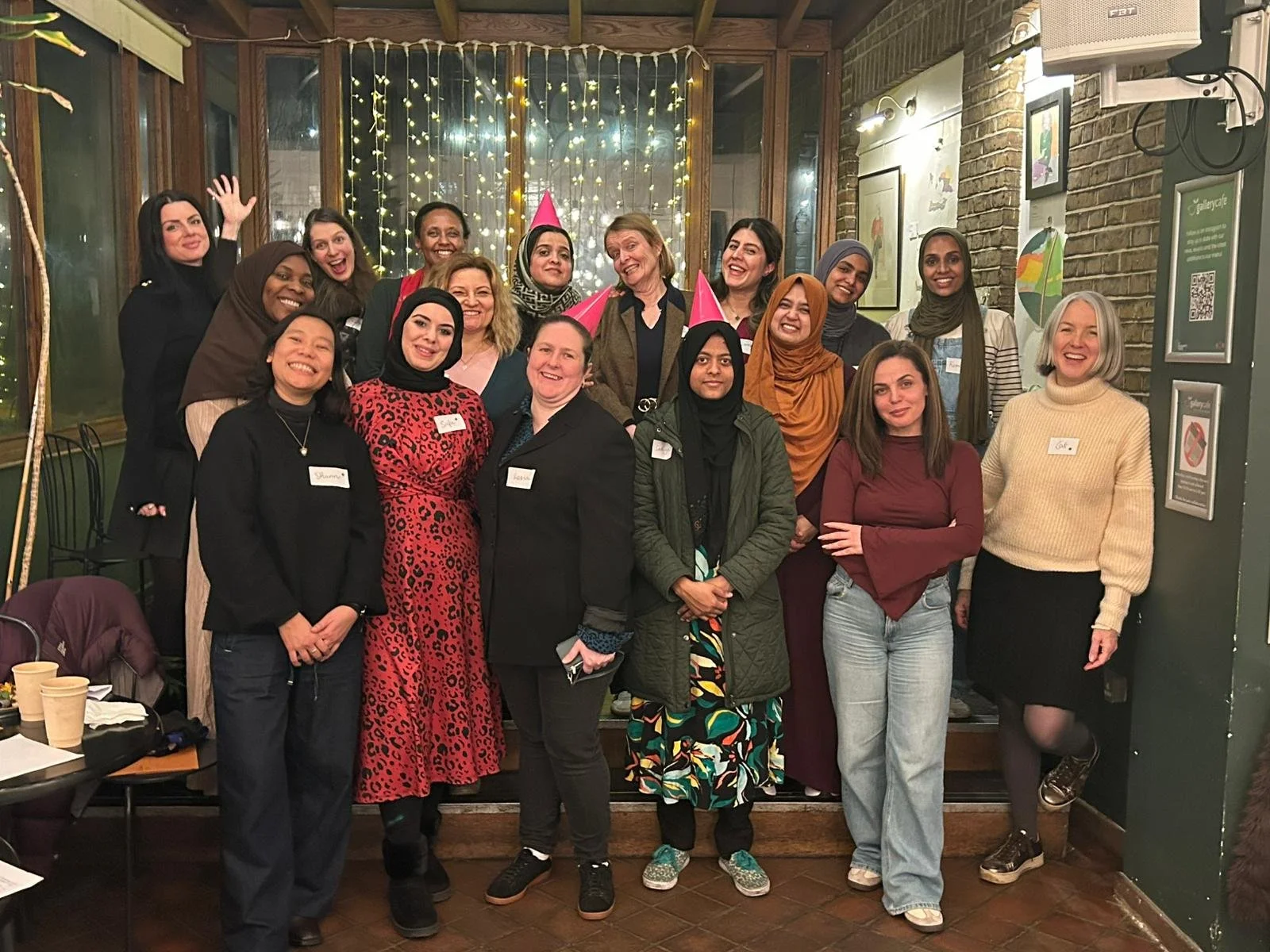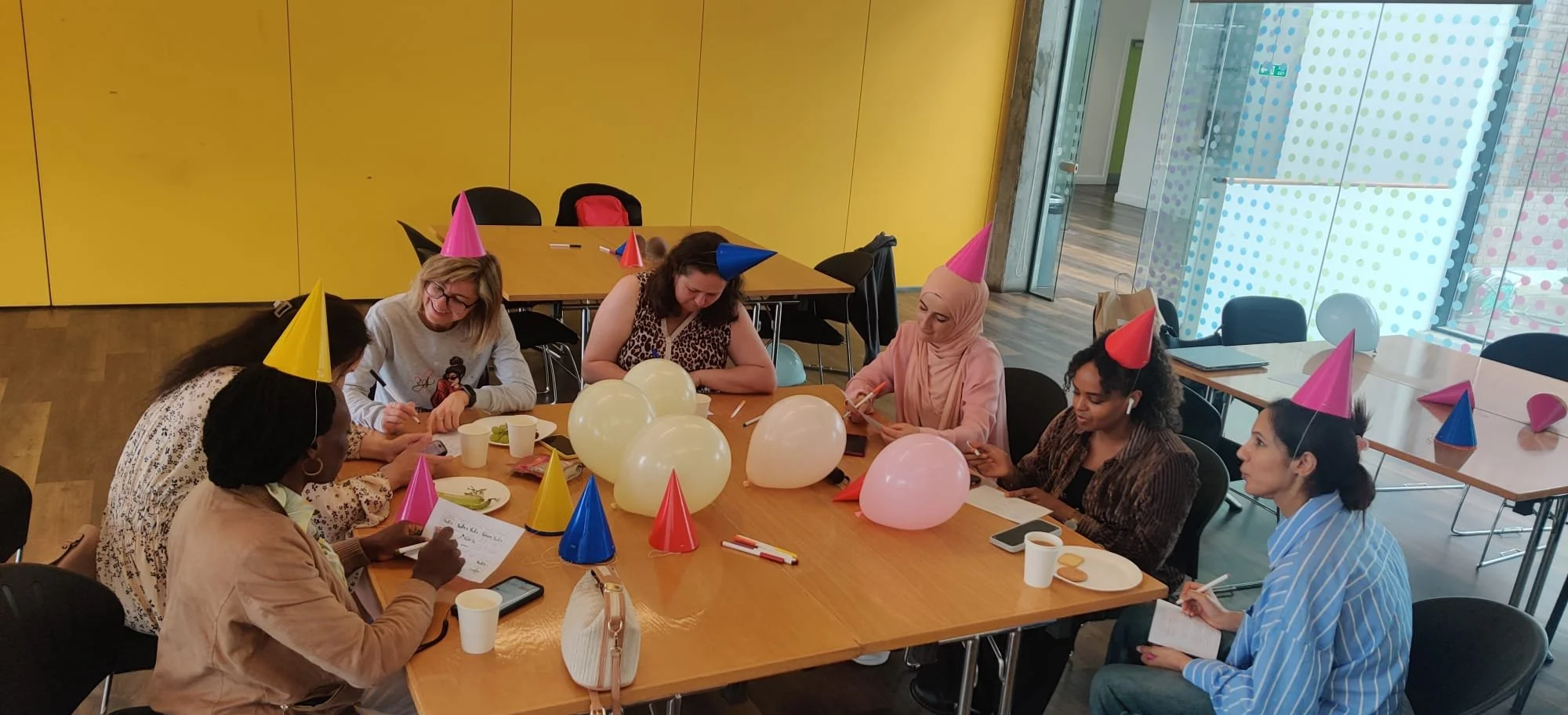Statement by Routes: response to the White Paper on Immigration
May 2025: Not an Island of Strangers
Earlier this month, Keir Starmer described the UK as becoming “an island of strangers” — language that fuels dehumanising narratives and the exclusionary policy-making evident in the recently released Immigration White Paper. Such rhetoric does more than politicise migration; it threatens the principles of dignity, equality, and protection that the UK’s laws and international commitments strive to uphold for all who live here.
In a response to the rhetoric shared by the Prime Minister and further backed by the Home Secretary and Downing Street, Asylum Matters published a Statement to stand in solidarity with migrant and refugee communities.
It reads, ‘‘Together, as representatives of civil society and as individuals and organisations embedded in communities across the country, we stand against the recent rhetoric of the Prime Minister, irresponsible politicians and that of the far-right, that serves only to divide our communities. Together, we stand in solidarity with all minoritised people including all racialised people and all migrants - our friends, family members, colleagues and neighbours - as they face growing fear and insecurity, fuelled by the hostility, scapegoating and polarisation being whipped up by political leaders.’
Routes has also signed up to this statement, and we want to invite you to join us in speaking up for migrant justice.
At Routes, through our partnerships, the community we serve and the lived experiences of our board and team, we know firsthand that this country has been shaped by immigrants and its descendants, as well as those families with longer lineages in the UK. UK communities and workplaces are made up of a diversity of people, from different backgrounds and places of birth, who have formed the backbone of our housing, health and public services.
Refugees and asylum seekers are no exception. It is their fundamental human right, protected under the 1951 Refugee Convention and its 1967 Protocol, to seek asylum in another country when fleeing persecution. The right to claim asylum is also enshrined in Article 14 of the Universal Declaration of Human Rights, which affirms that everyone has the right to seek and enjoy asylum from persecution in other countries.
Whilst there is an international right to seek asylum - a direct result of the experiences in Europe of the Second World War - many European countries are currently not living up to this notion of providing welcome and safety. The UK’s asylum system and related immigration policy is explicitly hostile by design - and has been built up to be so by different governments, from different political colours, over the decades. This means that whilst the current comments are shocking, they are unfortunately not new - they have roots in different parts of Britain’s past and present.
They are also a choice - immigration policy does not have to be like this. In fact, only 5 years ago Keir Starmer was speaking very differently about welcoming people.
We know that dehumanising language is incredibly impactful - statements like these can serve to legitimise further crackdowns on rights, as well as normalise acts of hostility towards migrant communities by the general public. In fact, research by the Mental Health Foundation published in April 2025 shows the significant impact of last summer’s race riots on the wellbeing of asylum-seekers in the UK. These events do not happen in isolation.
The focus of the government should be on preventing further escalation and attacks, in line with people’s human rights - not adding more fuel to the fire.
This language does not stand on its own - it is part of wider legal and policy developments, that have restricted people’s experiences of autonomy, safety and belonging. There are many organisations doing great work to campaign for migrant justice, and to advocate for refugee rights. There are many legal and political arguments to make against divisive narratives. There is also a profoundly human one. As the poet Michael Rosen reminds us, people who we might not yet know - regardless of their or our backgrounds - might be our greatest support in a time of need. We see so many people in our work at Routes, who have great personal and professional goals, strong skills and a commitment to be contributing to our communities.
Supporting refugee rights: what can you do?
If you are safe and able to do so, now is a time to speak up and connect to organise for migrant justice. Please find below some suggestions from the Routes team to do so:
Educate yourself. There are many great resources out there, to help you understand the situation of refugees and migrants better. You don’t have to have all the answers - listen to people with Lived Experience of the UK asylum system and related systems first. Refugee Week is coming up in June, which is a great occasion to learn more about the lives, experiences, aspirations and challenges of refugee communities in the UK and abroad.
Think critically and make sure to make up your own mind. Whilst there are some conversations in politics and media exploring the distinction between ‘illegal’ and ‘legal’ migration, it is important to remind yourself and others that under international law, it is not illegal to seek asylum in a different country. In fact, this is a right that we all have - and that was put into writing, to ensure that this would not get lost in ‘complicated’ political narratives. The notion of ‘‘illegal immigration’’ not only disregards these legal protections, but is also a dangerous fiction that demonises those seeking safety and distorts public understanding of migration. We should stop this scapegoating.
Support campaigns for safe routes. Seeking asylum is a human right - but it is not one that is easily accessible. There are almost no safe routes into the UK, which leads people to take dangerous, irregular routes - which, in turn, result in deaths and distress on UK borders. Please support campaigns for safe routes.
Support campaigns for refugee rights, and local support organisations. There are many great organisations working to support refugees and other migrants, with practical support, legal aid, employment support and more. There are brilliant campaigns, such as those advocating for the right to work for everyone in the UK asylum system, and for safe accommodation for those waiting for the outcome of their asylum claims. There are organisations trying to provide trauma-informed care, in a system that has the real risk, on a day-to-day basis, of further traumatising those seeking safety. If you can, please join a local support group, donate, or think about your own community connections as a superpower - and explore how you might use them. We all have power to act.
Start conversations around refugee rights in your personal and professional networks. Have a conversation with family or friends. Think about accessibility at your local sports club or cultural hub. Ask your employer about inclusive recruitment policies, their CSR spending or volunteering opportunities to support people from refugee backgrounds to achieve their goals. A few great resources on speaking up for refugee rights include Praxis’ Essential Guide: How to Change Minds on Migration and City of Sanctuary’s ten top tips to have courageous conversations on refugee rights. ~
Together, we can organise for better
Restrictions on human rights rarely come on their own - they are part of a pattern of crackdowns on different people’s human rights, and the normalisation of human rights for some, not all. But together, we can challenge that.
We are with many, speaking up for human rights in a way that is truly inclusive and intersectional.
When the UK Supreme Court recently delivered a judgement on the Equality Act that affects the safety and inclusion of trans women, organisations like Give Your Best and Routes, in our newsletters, spoke out against all forms of discrimination, including transphobia. We reaffirmed our solidarity with all vulnerable communities, and the principle of creating joyful, welcoming spaces as central to our work to resisting harmful practices. Other human rights organisations are speaking up too, such as Amnesty International and the Good Law Project.
We see violations of international law and human rights daily in the news and on our screens. Some are being called out by governments and political leaders, whilst others are not. Yet the people show up - from across the country. We know that we need to hold our leaders to account, and that we have power to do so, to speak up for safety and dignity for all.
On another island, Aotearoa New Zealand, three Members of Parliament have been suspended for performing a traditional dance as a way to respond to legal developments, threatening the rights of indigenous communities. Whilst this punitive move in parliament is unprecedented, people organising against power stands in a long tradition. In the UK, we need to learn from these histories, including by reflecting on Britain’s colonial past.
On 15 May 2025, the poet Hollie McNish wrote: ‘Please stop believing all the rhetoric about people on small boats’. (Please go gently when you watch her 15 years old poem (!) about preventing death on route to seeking safety, that is still unfortunately a regular, preventable story in the news.)
At Routes, we would like to extend that invitation, to ask you to stand in active solidarity for safety for all.
We have a moral imperative to stop believing dehumanising narratives, and start creating better ones together.



